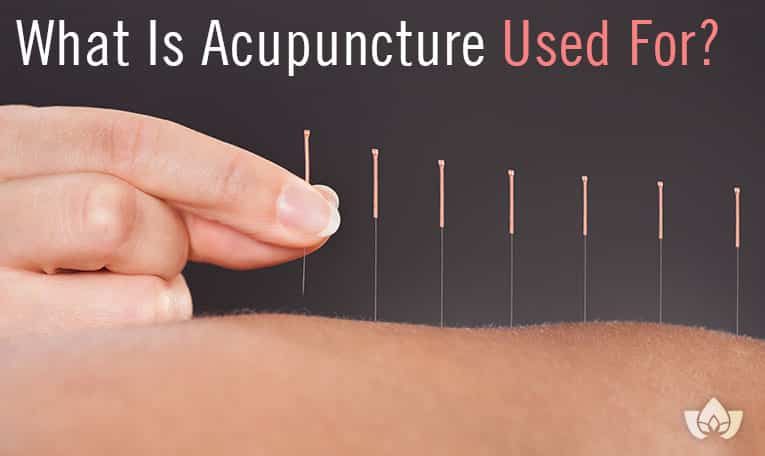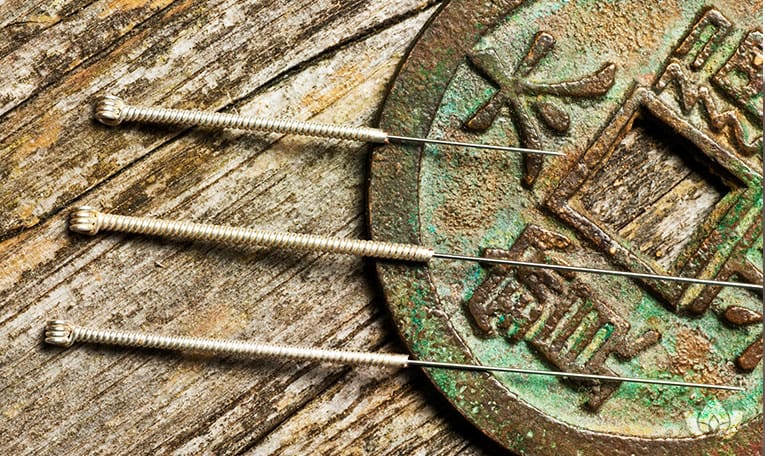
If you only know one thing about acupuncture, it’s probably the fact that it uses needles.
And if you have a thing with needles, the idea of acupuncture might scare the living daylights out of you.
But there’s a lot more to acupuncture than just poking you with needles.
The assumption that it’s painful is only one of the countless misconceptions about acupuncture.
But it’s just that: a misconception.
In fact, even those who are frightened of needles often find the experience to be relaxing and peaceful.
As a Mississauga naturopathic doctor, I incorporate acupuncture into my practice as a useful tool for dealing with ailments.
In this article, I’ll fight work to debunk some of the misconceptions of acupuncture by discussing what acupuncture is and how you may benefit from it.
Let’s get started.
History Of Acupuncture
Like much of modern medicine, acupuncture has its roots deep into history.
Acupuncture may be one of the oldest methods of healing on the planet.
The earliest example of what might be acupuncture dates back to about 6000 BCE, where sharpened rocks and pieces of bone were used in place of modern acupuncture needles.
These items could have been used for simple surgical procedures (like lancing a boil or stitching a wound, for example), so it’s hard to say whether or not they were actual acupuncture needles.
The first confirmed example of what we may today recognize as acupuncture is written in The Yellow Emperor’s Classic of Internal Medicine, an ancient Chinese document dating back to about 100 BCE.
In it, we find a conversation between the Yellow Emperor, a mythological figure in Chinese history, and Chi Po, a minister.
Having been practiced in China for millennia, acupuncture began to be practiced in North America by Chinese immigrants in the 1800s.
However, it wasn’t until Richard Nixon opened up relations between the United States and China that acupuncture began to really gain ground in North America.
How Acupuncture Works
Acupuncture is based on the concept of how energy flows through the human body, which the Chinese call qi (pronounced “chee”).
Your body’s qi moves along twelve main channels, called meridians, which are connected with the body’s major functions, though they don’t follow the patterns of blood vessels or nerves.
In total, your body has 350 different acupuncture points.
We refer to these points as “pressure points”.
By placing needles at these acupuncture pressure points, there is a subsequent promotion of the flow of qi throughout the body.
In modern Western medicine, the focus is less on qi and more on muscle relaxation.
The insertion of tiny filiform needles is placed into your pressure points to help your muscles relax, improve blood flow, and ease pain.
Additionally, acupuncture is thought to help promote central nervous system health.
By stimulating your central nervous system, acupuncture helps your brain release helpful chemicals into your body.
These chemicals help with a wide range of bodily functions, ranging from the promotion of healing as well as improved physical and mental health.

Benefits Of Acupuncture
While science has had difficulty either proving or disproving the concept of qi, acupuncture has been shown to be effective for several different conditions.
For instance, it can be helpful in reducing certain types of pain, such as menstrual pain (dysmenorrhea).
A 2018 study by Lin Woo et al. found that acupuncture may help with the management of menstrual pain compared to nonsteroidal anti inflammatory drugs (NSAIDs).
It has also been found to significantly help with headaches and migraine related pain.
It can even help chemotherapy patients manage their pain and reduce nausea.
But acupuncture’s benefits don’t end with pain management.
Below is a list of some of the conditions for which evidence shows acupuncture can help:
- Fibromyalgia
- Urinary tract health and prevention of urinary tract infections (UTI)
- Dysentery
- Tourette’s syndrome
- Blood pressure imbalance (high or low)
- Peptic ulcers
- Sprains
- Whooping cough
- Morning sickness
- Rheumatoid arthritis
- Sciatica
- Tennis elbow
- Back pain
- Menopause
- Immune system health
- Stress and Anxiety
According to Johns Hopkins Medicine, acupuncture can even help with rehabilitation following a stroke.
Speak to me, Dr. Maria, ND, at The Mindful Healing Clinic today to learn how acupuncture can help to improve your health.
Risks Of Acupuncture
Generally, acupuncture is considered a safe practice with minimal risks.
However, no healthcare practice can be considered 100% risk free.
Nonetheless, the risks of acupuncture remain low as long as you’re receiving treatment from a qualified practitioner with sterilized equipment.
Certain conditions may increase your likelihood of experiencing adverse reactions to acupuncture.
Speak to Dr. Maria before starting acupuncture if you have a bleeding disorder, a pacemaker, or are pregnant.
What To Expect
During an acupuncture treatment, you’ll lie down on a comfortable padded table in a treatment room.
Depending on which part of your body needs to be treated, you’ll have to remove some of your clothes.
However, your comfort is of the upmost important so make sure to speak with Dr. Maria, ND, if you’re feeling uncomfortable.
We will provide you with a robe if necessary.
Next comes the needle insertion.
Acupuncture needles are thin and very tiny, so it usually causes only minimal discomfort.
If you do feel pain, though, let us know.
Once again, your comfort is the most important thing.
We don’t mind taking extra time to ensure you’re feeling comfortable.
Once the needles are inserted, we may have to adjust them slightly.
Then we leave them in place for 25 to 45 minutes.
During that time, you’ll lie still and relax.
You can even listen to calming music or guided mediation to help you relax.
Afterward, we’ll remove the needles.
Don’t worry, this part doesn’t hurt much at all.
Some people report feeling extremely relaxed after an acupuncture treatment, while others claim to feel lighter, as though they’re walking on the Moon.
Others report no effect at all.
What you get out of your acupuncture treatment may vary drastically from someone else’s experience.
Book Your Appointment With The Mindful Healing Clinic Today
If you’re interested in exploring the possibility of acupuncture treatment, the Mindful Healing Clinic can help.
Contact us to book your FREE health and wellness session with Dr. Maria.
You’ll get all your questions about acupuncture and naturopathy answered.
From there, Dr. Maria will listen to your health concerns and help you understand whether acupuncture is right for you.
Book your appointment with The Mindful Healing Clinic today to hear more about the various ways acupuncture can improve your life.
Until next time,
Dr. Maria Cavallazzi, N.D
Mindful Healing Naturopathic Clinic
Mississauga, ON L5M 1L7
(905) 819-8200
► https://g.page/MindfulClinicNaturopathic
Dr. Maria Cavallazzi is a medical doctor from Colombia where she practiced as a family physician for 8 years until she moved to Canada 16 years ago and became a naturopathic doctor in Mississauga.


